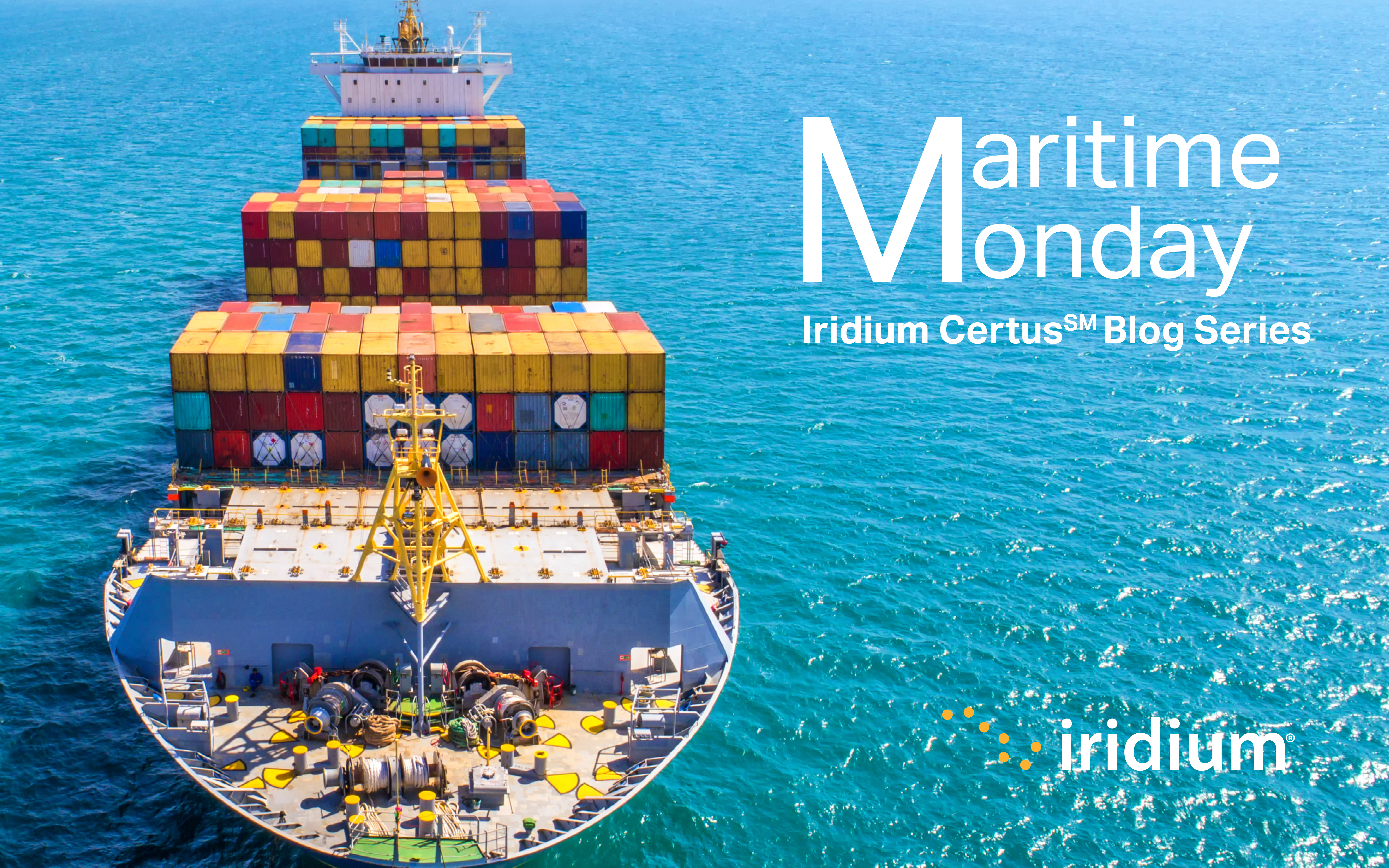Maritime Monday: Big Data, Big Pipes? What About Smart Data?

 Guest Blogger: Dan Rooney, Director of Maritime Business
Guest Blogger: Dan Rooney, Director of Maritime Business
Looking at the different verticals Iridium serves, these markets often have very similar connectivity requirements. For example, compare a heavy machinery mining truck to shipping containers, or wind turbines to an aircraft. These assets use the same Iridium® technology to transfer big data, either as the primary connection, or as part of a hybrid solution augmenting other technologies such as GSM, LTE, or LoraWAN.
There are many definitions of Big Data. It’s a common misunderstanding to believe that big data requires big bandwidth, and therefore VSAT is the only available option; however, there are other considerations at play beyond just bandwidth. These considerations include location and size of a device, its cost, urgency of data transfer, etc. As digitalization in shipping progresses, we are witnessing an exponential growth in the number of IoT applications. This, in turn, drives the requirement for greater bandwidth. Yet, many IoT devices reside on ships, thus reducing the frequency and amount of data communications, ensuring that only required data is exchanged between ship and shore.
At Iridium, we see IoT, Big Data, and Block Chain as technologies that the maritime segment will embrace, bringing cost savings and greater insight. Digitalization will be powered by a multitude of connectivity options – for example hybrid networking. Iridium CertusSM is in a unique position to become the smart grid of maritime IoT. Iridium Certus delivers Big Data and IoT to shipping companies across the globe, at the lowest uniform latency powered by small form factor maritime grade equipment.
Check out what Iridium Certus can offer you at www.IridiumCertus.com.

